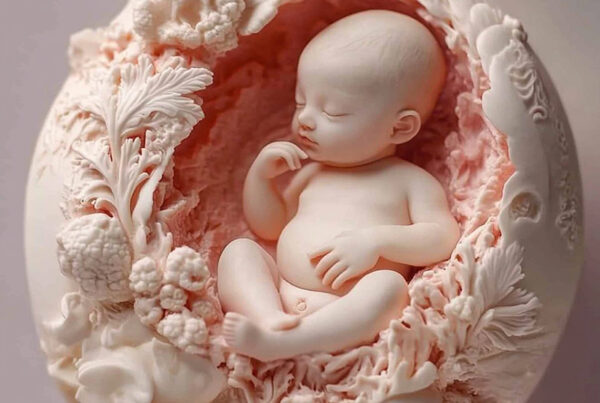Congratulations on this exciting new chapter of your life! The first trimester of pregnancy is an incredible and sometimes overwhelming time. As your body starts making big changes, it’s normal to experience a mix of emotions and physical symptoms.
Knowing what is normal in the first trimester can help you feel more prepared and empowered as you navigate these first few months. Let’s dive into what happens in the first trimester, and how you can take care of yourself and your growing baby.
Guide to the First Trimester: Changes, Milestones, and Tips
Week 1-4: Early Beginnings
The first few weeks of pregnancy can be quite a whirlwind. You may not even realize you’re pregnant during the very first days, but your body is already beginning the journey. The fertilized egg is making its way down the fallopian tube and into the uterus, where it will implant.
During this time, your body starts producing pregnancy hormones like human chorionic gonadotropin (hCG) and progesterone, which support the early pregnancy milestones and the development of your baby.
At this stage, some women may experience early pregnancy signs like fatigue, breast tenderness, and slight cramping or spotting. If you’ve taken a pregnancy test and it’s positive, make an appointment with your healthcare provider to confirm your pregnancy and start prenatal care.
Week 5-8: Building the Foundation
By week five, your baby’s heart is beginning to beat, and tiny buds that will eventually form arms and legs are starting to appear. Your baby is growing rapidly, and so is your uterus, although it’s still too early to feel any physical changes in your body. This is a key part of baby development in the first trimester.
During this time, many women experience more noticeable symptoms, including:
- Morning Sickness: Nausea and vomiting, especially in the morning, is common during the first trimester. This usually peaks around 6-9 weeks and can last until the end of the first trimester or longer for some women.
- Fatigue: As your body works hard to support your growing baby, you may find yourself feeling exhausted. It’s important to listen to your body and rest when you need to.
- Breast Changes: Your breasts may feel sore, swollen, or tender as your body starts preparing to nourish your baby. You might also notice changes in your nipples, like darkening.
- Mood Swings: The surge in pregnancy hormones can cause emotional ups and downs. It’s normal to feel a little more sensitive, anxious, or teary during this time.
- Frequent Urination: As your body adjusts to pregnancy, you may find yourself needing to use the bathroom more often.
Week 9-12: Your Baby’s Rapid Growth
By the time you reach week 9, your baby has gone from a tiny embryo to a small fetus with recognizable features. The heart, brain, and other organs are fully formed, and your little one is growing at an astonishing rate—though still very small, about the size of a lime! This is a significant milestone in baby development in the first trimester.
During this stage, you may notice some of the earlier symptoms starting to ease. However, you may also experience:
- Increased Fatigue: As your body continues to adjust to pregnancy, the fatigue can persist. It’s important to prioritize self-care and take breaks when needed.
- More Frequent or Intense Nausea: Morning sickness can still be in full swing, but for many women, it starts to improve after the first trimester.
- Constipation: Hormonal changes can slow down digestion, making constipation a common issue during early pregnancy.
- Skin Changes: Hormones can affect your skin, leading to acne or the “pregnancy glow” some women experience due to increased blood flow.
- Food Cravings or Aversions: Some women begin to experience strong cravings for certain foods or aversions to others. It’s all part of the process as your body adjusts to pregnancy.
Your Growing Baby at the End of the First Trimester
By the end of the first trimester (around 12 weeks), your baby is about 2-3 inches long and weighs about half an ounce. Your little one has fingers and toes, a fully formed face, and is even starting to practice moving, though you won’t feel it yet. This is a major milestone in baby development in the first trimester.
This is an exciting milestone for you too, as the risk of miscarriage drops significantly after the first trimester. Many women start to feel more confident and less anxious about their pregnancy as they move into the second trimester, which is often considered the most comfortable.
Self-Care Tips During the First Trimester
The first trimester is a time of rapid change, and taking care of yourself is essential. Here are some simple ways to nurture your mind, body, and baby:
- Get Enough Rest: Fatigue is one of the most common symptoms, so give yourself permission to rest and nap when you need to. Your body is working hard, and rest is key to staying healthy.
- Eat Well: Aim for a balanced diet full of fruits, vegetables, lean proteins, and whole grains. Prenatal vitamins with folic acid are important to help prevent neural tube defects.
- Stay Hydrated: Drink plenty of water throughout the day to stay hydrated, especially as your blood volume increases.
- Gentle Movement: If you feel up for it, gentle physical activity like walking or stretching can help boost your energy levels and improve your mood.
- Listen to Your Body: If you’re feeling exhausted or overwhelmed, don’t push yourself. It’s okay to take a step back and focus on self-care.
- Talk About Your Feelings: It’s completely normal to feel a mix of emotions—excitement, anxiety, or even fear. Talk to someone you trust, whether that’s your partner, a friend, or a healthcare provider, to process your feelings.
- Be Patient with Yourself: Your body is going through a lot of changes, and it’s important to be kind to yourself. It’s okay to not feel 100% all the time—this is a huge transition, and you’re doing great.
Final Thoughts
The first trimester is an exciting and sometimes challenging time. As your baby grows and your body adapts, you may experience a range of emotions and physical changes. Remember, this is all part of the beautiful journey of pregnancy. Trust your body, seek support when you need it, and take time to care for yourself. You’re laying the foundation for a healthy pregnancy and a wonderful journey ahead!
You’ve got this. Take it one step at a time—your little one is already growing strong, and so are you. 🌸
At BabySteps, we understand the ups and downs of pregnancy. That’s why we connect you with certified experts who offer personalized support and guidance every step of the way. Whether it’s managing how your body changes in early pregnancy or answering your questions about nutrition, we’re here to help you feel empowered and confident on your journey. 🌟




